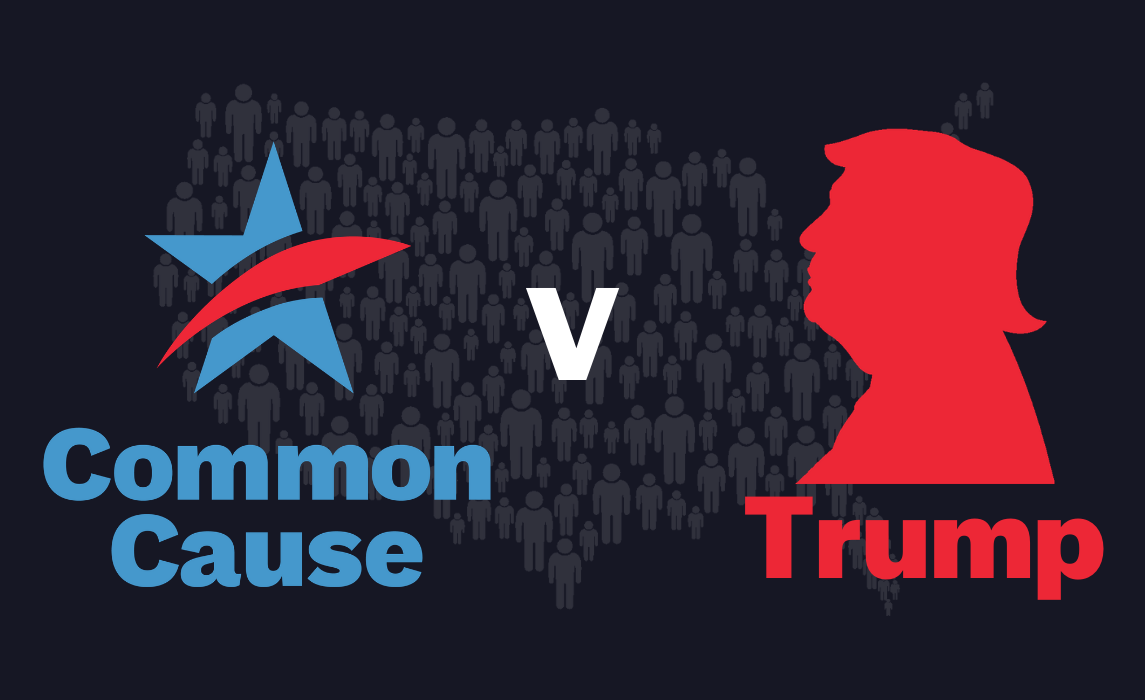
The Latest
On November 25, 2020, the U.S. District Court for the District of Columbia declined to rule on the merits of this case, stating that it is not yet ripe for a decision because the precise manner in which the Trump Administration will implement its discriminatory policy is not yet known.
On December 18, 2020 the U.S. Supreme Court reached a similar conclusion in Trump v. New York, a different challenge to the president’s memo, finding issues with both ripeness and standing prevented the Court from adjudicating the merits. Read Common Cause’s press release following the Supreme Court’s dismissal of Trump v. New York.
Nevertheless, the Trump Administration’s discriminatory exclusion policy will not take effect. The Census Bureau was unable to complete the processing of data used for apportionment before the end of President Trump’s term on January 20, 2021, and does not anticipate completing its apportionment counts until April 30, 2021 . On his first day in office, President Biden signed an executive order revoking the Trump Administration’s memo and affirming the counting of all inhabitants of each state, regardless of immigration status.
Our Legal Argument
On July 21, 2020, President Donald Trump issued a memo describing his administration’s intent to implement a discriminatory and unconstitutional policy regarding the census. This memo directed the Secretary of Commerce to provide the President with the information necessary to exclude undocumented people from being counted in upcoming congressional seat allocations. Read the memo here.
On July 23, 2020, Common Cause sued the President in the U.S. District Court for the District of Columbia. We and our co-plaintiffs challenged this transparent effort to deprive cities and communities with large immigrant populations of equal representation in Congress and to threaten their ability to access federal resources that rely on census data. Read the complaint here.
The plain language of the law makes it clear that the Trump Administration’s order is illegal. The 14th Amendment requires that the “whole number of persons in each state” be used to determine the allocation of seats in the House of Representatives, and federal law requires that the Secretary of Commerce send to the President the “tabulation of total population by states” and for the President to then send to Congress a statement showing the “whole number of persons” in each state.
Oral arguments in the U.S. District Court for the District of Columbia took place on September 29, 2020. The District Court ruled on November 25, 2020 that the case was not yet ripe for a decision because it was unclear exactly how the Trump Administration would implement the memo.
Plaintiffs from Across the Country
In addition to Common Cause, government plaintiffs included the cities of Atlanta (GA), Clarkston (GA), Dayton (OH), El Paso (TX), Paterson (NJ), Portland (OR), South Pasadena (CA), and El Monte Union High School District (CA). Organizational plaintiffs included the Partnership for the Advancement of New Americans, the Center for Civic Policy, Masa, New Jersey Citizen Action, New Mexico Asian Family Center, and New Mexico Comunidades en Acción y de Fé. There were also 24 individual plaintiffs from California, Florida, New Jersey, and Texas who would have faced diminished representational rights and suffered vote dilution if the President’s Executive Order was implemented.
Plaintiffs sought an injunction to block this unconstitutional order, and to require the President to include all people within a state, regardless of immigration status, for the purpose of congressional apportionment.
The Legal Team
Plaintiffs were represented by Emmet J. Bondurant of Bondurant Mixson & Elmore LLP; Gregory L. Diskant, Daniel S. Ruzumna, Aron Fischer, and Jonah M. Knobler of Patterson Belknap Webb & Tyler LLP; and Michael B. Kimberly of McDermott Will & Emery.